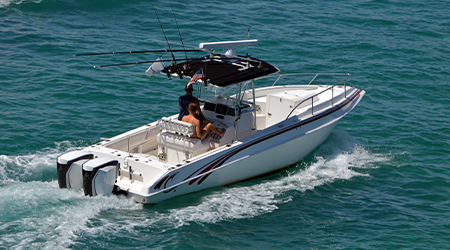
According to the South Carolina Department of Natural Resources, 131 recreational boating accidents resulted in 19 fatalities during 2015, the most recent year for which boating accident statistics are available. That was up from 2014 when 15 people died in 127 boating accidents in South Carolina.
A boating accident can leave injured people to cope with large medical bills, financial worries, pain, and emotional trauma. The laws in South Carolina require people whose negligence or irresponsibility cause boating accidents to be held legally liable for the damages that result.
To obtain the compensation you deserve after a boating accident injury or death, you need to pursue a legal claim for damages. A boating accident lawyer at Joye Law Firm Injury Lawyers can help you make your claim. Our law firm has offices in Charleston, North Charleston, Myrtle Beach, Clinton, Summerville, and Columbia.
Accidents and Injuries in Recreational Boating
Boating is a popular pastime in South Carolina, a state with 8,000 miles of rivers, 3,000 miles of coastline, and 460,000 acres of lakes. Both residents and visitors enjoy fishing, pleasure boating, water-skiing, and other activities on the water.
While most boating trips are safe and everyone has a good time without incident, boating accidents can and do happen. In fact, the United States Coast Guard reports that there were a total of 4,588 boating accidents throughout the U.S. in recent years. These accidents caused around $52 million in property damage, and 3,081 people were injured and 758 people killed.
The vast majority of those who were killed – a full 70 percent on the national level – died from drowning. In any type of boating incident, a person could potentially drown. This is especially true when the boater is not wearing a life jacket.
Boating accidents are much more likely to occur when the boat operator has not had adequate safety instruction. In one year, the Coast Guard reported that almost 90 percent of the fatalities occurred aboard boats where the owner had not reviewed safety instructions.
Around 93 percent of the fatal boating accidents happened on boats operated by people who had not taken an approved safety course that had been certified by the National Association of State Boating Law Administrators (NASBLA).
How Boating Accidents Happen
Boating accidents can happen as a result of mistakes made by people who try to operate a boat without proper instruction and knowledge of boat safety, but this is just one cause of accidents.
The U.S. Coast Guard has made a list of common causes of boating accidents, including:
- Alcohol or drug use
- Speeding
- Improper lookout or failure to observe others on the waterways
- Broken or insufficient onboard navigation lights
- Failure to properly ventilate the boat or boating equipment
- Operator distraction or inattention
- Operator inexperience
- Failure to observe right-of-way rules or other boating rules
- Obstructed or restricted vision
- Sharp or unsafe turns
- Improperly starting the boat while it is in gear
- Failure to anchor the boat properly
- Overloading the boat or incorrect weight distribution
- Problems with boating equipment, including hull or machinery failure
- Crowded waters
- Hazardous water
- Storms or bad weather
- Fire
In many instances, those operating boats could prevent an accident by obeying the law and exercising a reasonable degree of care. When a boater fails to behave responsibly, he or she may be held legally liable for the resulting injuries.



